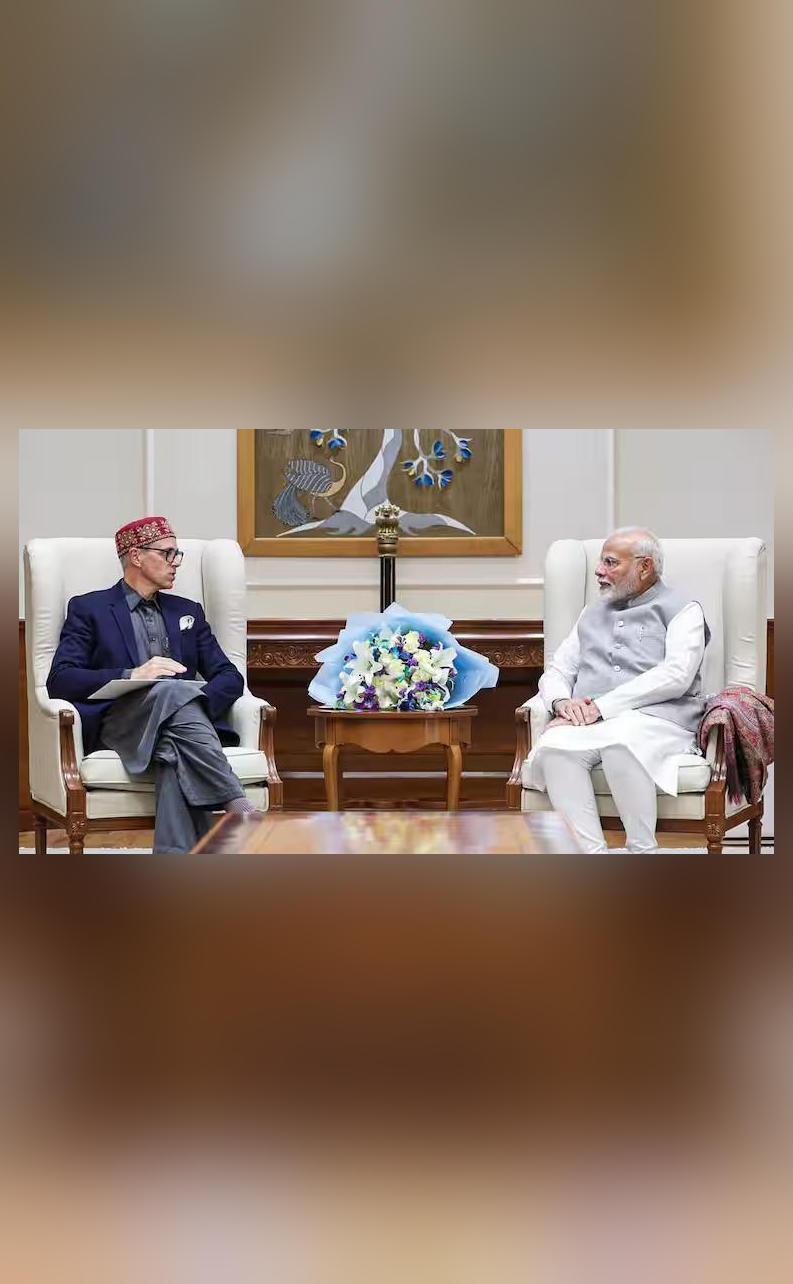
J&K CM Omar meets PM Modi for first time after Pahalgam attack
Jammu and Kashmir Chief Minister Omar Abdullah met Prime Minister Narendra Modi in Delhi on Saturday, marking his first meeting with the PM since the Pahalgam terror attack that left at least 26 tourists dead. The meeting, which reportedly lasted for around 30 minutes, is believed to have discussed the aftermath of the attack and the measures being taken to prevent such incidents in the future.
The Pahalgam terror attack, which took place on April 22, 2025, was a devastating incident that sent shockwaves across the country. A group of terrorists, reportedly affiliated with the Pakistan-based militant group, Jaish-e-Mohammed, stormed a tourist bus in Pahalgam, a popular tourist destination in Kashmir, and opened fire on the passengers. The attack left at least 26 tourists, including women and children, dead, and many more injured.
The attack was widely condemned by political leaders and citizens across the country, with many calling for stronger measures to be taken to prevent such incidents. The government, too, has been under pressure to take immediate action to curb the growing menace of terrorism in the state.
In the wake of the attack, Chief Minister Omar Abdullah had been critical of the government’s handling of the situation, saying that the state was not being given adequate support to combat terrorism. He had also called for a review of the security arrangements in place for tourists and locals in the state.
It is in this context that the meeting between Omar Abdullah and Narendra Modi assumes significance. The meeting is seen as an opportunity for the two leaders to discuss the current situation in Kashmir and the measures being taken to prevent such attacks in the future.
According to sources, the meeting was a productive one, with both leaders discussing the issues affecting the state and the measures being taken to address them. The Prime Minister is believed to have assured the Chief Minister that the government was committed to providing all necessary support to the state to combat terrorism and ensure the safety and security of its citizens.
Omar Abdullah, too, is believed to have expressed his commitment to working with the government to tackle the issue of terrorism in the state. He is said to have emphasized the need for a comprehensive approach to address the root causes of terrorism in Kashmir, including poverty, unemployment, and lack of opportunities.
The meeting between Omar Abdullah and Narendra Modi comes at a critical time for the state, which is struggling to come to terms with the devastating impact of the Pahalgam attack. The attack has raised concerns about the safety and security of tourists and locals in the state, and has also highlighted the need for the government to take stronger measures to prevent such incidents in the future.
In the aftermath of the attack, the government has launched a massive crackdown on militant groups operating in the state, with several top leaders of these groups being arrested or killed in encounters with security forces. The government has also announced a package of measures to support the families of those who lost their lives in the attack, including financial assistance and job guarantees.
Despite these measures, the attack has left a deep scar on the people of Kashmir, who are still reeling from the shock and trauma of the incident. The attack has also raised questions about the effectiveness of the government’s counter-terrorism strategy, with many calling for a more comprehensive and nuanced approach to address the issue of terrorism in the state.
In conclusion, the meeting between Jammu and Kashmir Chief Minister Omar Abdullah and Prime Minister Narendra Modi is a significant development in the wake of the Pahalgam terror attack. The meeting is a reflection of the government’s commitment to providing support to the state to combat terrorism and ensure the safety and security of its citizens. It is also a recognition of the need for a comprehensive approach to address the root causes of terrorism in Kashmir, and to prevent such incidents from happening in the future.






